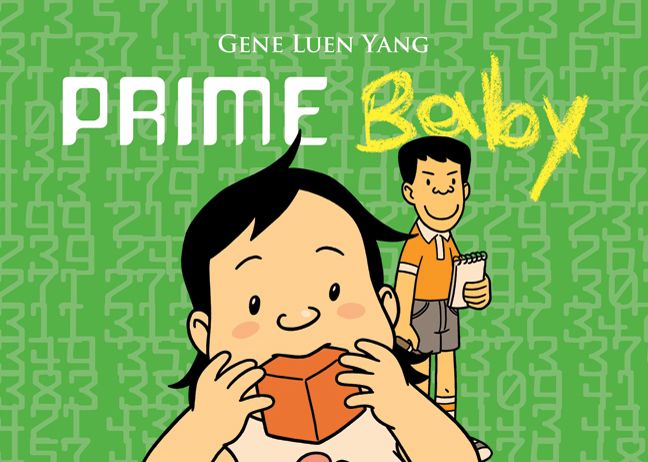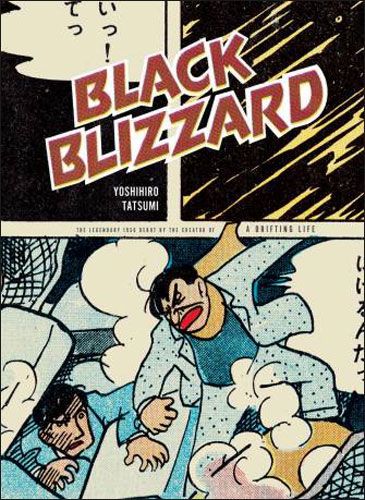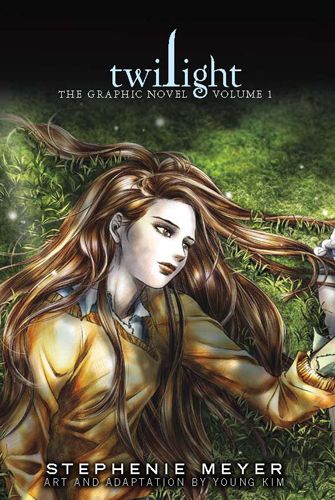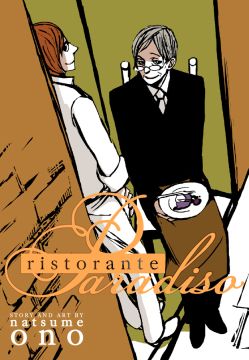by Gene Luen Yang
First Second, 64 pages, $6.99
Every book by Gene Yang thus far follows the same basic thematic plot: A young man (or woman, but usually man) feels his life would be perfect if he could only attain that one special thing (acceptance, money, popularity, etc.). Through supernatural or otherwise fantastical means, he obtains his goal, only to discover (all together now) that it wasn't what he really needed after all.
So it is with Prime Baby, Yang's newest book, which was originally serialized in the New York Times Magazine. It's about a young boy, Thaddeus K, who dreams of global conquest and is supremely resentful, jealous of, and thoroughly annoyed by his baby sister. When it turns out that his sister also serves as an inter-dimensional doorway to an alien world and tens of little pod spaceships start spitting up of her mouth, Thaddeus sees an opportunity to rid himself of his sister once and for all. Does he come to regret his decision? Are there stars in the sky?
Yang is a talented cartoonist -- he's got a nice, clean, minimalist style that I like -- and he knows how to pace his story and deliver a joke (he gets some amusing mileage out of the invading aliens, who turn out to be peace-loving missionaries). But he telegraphs his themes so broadly in advance, and those themes are so banal and lacking in any real depth, that it's hard not to be get irritated.
Perhaps that's a bit of an unfair criticism for a book that's so slight and has such meager aims, and certainly I think kids will be able to enjoy the book without noticing any of the above-mentioned problems, but it's awful hard to shake the feeling that Yang has been running in place since the success of American Born Chinese. Here's hoping he stretches out a bit for his next book.
by Yoshihiro Tatsumi
Drawn & Quarterly, 134 pages, $19.95.
As you no doubt are already well aware of by now (assuming you visit the same Web sites I do), this is one of Tatsumi's earliest works, done while he just an eager young manga-making lad. It's a genre exercise whose act of creation was chronicled in Tatsumi's more recent work, A Drifting Life.
So yes, the story -- involving two criminals on the run and handcuffed together -- is a bit hackneyed, and yes, the art isn't as controlled as Tatsumi's more mature work, and yes, the third act denouement is comparable to the psychiatrist scene at the end of Psycho in terms of it bringing the story to a crashing halt.
But man, this thing moves. It's almost pure energy, all slashing diagonal lines and tight, angular perspectives. The young Tatsumi seems to have studied and absorbed every aspect of the film noir that was so prevalent at the time and attempted to regurgitate it on the page in as frenzied a manner as possible. The book all but forces you to read faster, to turn the page, to become even more deeply absorbed in the story. Whatever its faults, Black Blizzard has passion and a sense of urgency, two qualities that seem to elude most comics -- be they American or Japanese -- these days.
Twilight: The Graphic Novel Vol. 1
by Stephenie Meyer and Young Kim
Yen Press, $19.99.
Is there any real surprise that this is bad? Was there anyone out there actually thinking to themselves, "Oh, this is going to be just as good, if not better, than the original novel and the movies"? I would like to meet that person. They must be an unending font of optimism.
While Young Kim's adaptation of the insanely-popular vampire series doesn't sink to the bottom of perdition like the proverbial stone, neither is it particularly inspired or well thought-out. Kim is a decent enough artist (by OEL manga standards at any rate) but she seems more concerned with having her cast strike cool-looking poses than ensuring that her readers can understand what is going on from panel to panel (I loaned the book to a co-worker who's a fan of the series and she said she'd never have picked up the books if she had started with the comic instead). The issue of the book's poor lettering has already been commented on, but I'll just chime in long enough to say it is indeed really distracting and comes off as amateurish.
Not that any of that really matters. This is just another franchise spin-off of a currently "hot" product, regarded by most as the equal to the notepads, journals, key chains and other ephemera. Effort was certainly made to make this book attractive, but not, sadly, to be any good.
by Natsume Ono
Viz, 176 pages, $12.99
What's more interesting to you, the story of an abandoned daughter who, upon reaching adulthood, attempts to confront her long-lost mom and figure out why she left her, or the story of a young woman who comes to work at an Italian restaurant staffed entirely by older, but handsome men, all of whom wear glasses.
For me, it's strictly the former, and I was more than a bit annoyed when Ono sidestepped what I thought was the more emotionally compelling tale to focus instead on the cute girl interacting with the handsome wait staff. There's a real tragedy and a lot of hurt feelings at the core of this manga, but Ono never does more than dance around it, constantly hinting but never really plumbing what lies behind these characters calm veneers. It doesn't sink the book entirely, but it does give it a shallow, artificial gloss, and ultimately led me down the path to disappointment.




